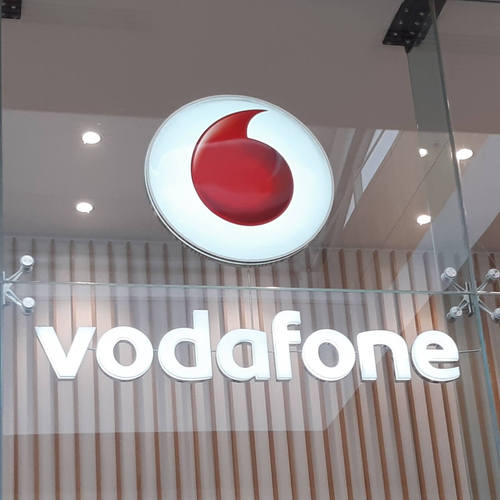Amid rampant inflation and concern about energy costs, the UK-headquartered operator is making an even bigger deal about automation.

Vodafone pockets at least €3.2 billion ($3.3 billion) from selling half its majority stake in Vantage Towers, a collection of European masts, to private equity, the latest powerbroker in telecom. It plans to use this for reducing its net debt, a process akin to bailing out a flooded home with a small bucket, only to find the water levels have risen the next day. Proceeds of €3.2 billion would be €700 million ($730 million) short of the debt increase alone since March. The overall figure now sits at €45.5 billion ($47.4 billion) – about €12.3 billion ($12.8 billion) more than Vodafone is worth.
Meanwhile, sales growth is sluggish, energy costs are rising and profits are feeling the pinch. Revenues ticked up 2% year-over-year for the first half, to about €22.9 billion ($23.9 billion) and net income dropped 2.7%, to roughly €1.24 billion ($1.29 billion). This is not bad, considering the drops seen at other telcos. But Vodafone's earnings margin fell two percentage points, to 31.6%, and the outlook is unpleasant.
The latest response, then, is another cost-cutting plan, aimed at saving more than €1 billion ($1.04 billion) over the next three-and-a-half years through "streamlining and further simplifying the group." A slide in Vodafone's earnings presentation shows this will involve more "digitalization and automation," two favorite buzzwords in the telecom sector, and the likely closure of shops. This sort of thing was easier to justify when most people were still worried about COVID-19 and willing to shop online. Now the economy has replaced health as the main source of anxiety, it may go down like a Kwasi Kwarteng budget.
Figure 1:  'Further retail simplification and consolidation' lies ahead, said Vodafone.
'Further retail simplification and consolidation' lies ahead, said Vodafone.
(Source: l_martinez/Alamy Stock Photo)
On the other hand, it is arguably a good time to be cutting jobs, simply because everyone else is doing the same. Amid carnage in the adjacent tech sector, BT, Vodafone's biggest UK rival, has upped its own cost-saving target by £500 million ($593 million). Nor does Vodafone look very automated today. Its headcount dropped by more than 16,300 between 2016 and 2019, to around 95,200, but this was largely down to spinning off assets, including its huge Indian business. Since then, Vodafone has gained 1,700 employees.
If networks are "zero touch" and Vodafone's chatbot – named TOBi to make it sound warm and cuddly – is better than a customer service rep at mollifying irate customers, why does Vodafone need so many employees? The standard argument is that staff emancipated by software from drudgery can fill their hours with more gainful activities. But the piffling 2% increase in revenues at a time of rampant inflation suggests this hasn't quite worked out.
The energy conundrum
More encouragingly, Vodafone uses the same amount of energy as it did five years ago despite a sevenfold increase in data traffic on its networks over this period. Energy costs are up only because fossil fuels are pricier, and the bill had risen €86 million ($90 million) in Vodafone's last fiscal year, to €846 million ($882 million), even before the crisis had deepened. This is a good opportunity for Ericsson to sell more of its energy-efficient radio units, assuming Vodafone can find the money.
But the flat-consumption trend somewhat undermines an industry argument that rising volumes of data traffic generate costs. No doubt, at some point, Vodafone's networks will be so congested that it will have to invest in additional capacity. Yet capital intensity (capex as a percentage of sales) has been at much higher levels historically. It was in touching distance of 22% back in 2015, for instance, but averaged 16.4% between 2017 and 2021, according to slides shown by Johan Wibergh, Vodafone's soon-to-depart chief technology officer, last year.
Want to know more about 5G? Check out our dedicated 5G content channel here on Light Reading.
"We have not yet done capex planning for FY24 but for FY23 we are confirming €8 billion [$8.3 billion] capex spend excluding Vantage growth capex," said Margherita Della Valle, Vodafone's chief financial officer, on a call with analysts earlier today. "Looking ahead to FY24, we feel broadly comfortable in maintaining our current level of capital intensity."
Calls that equity analysts have with telco managers are increasingly like an exchange with Monty Python's Black Knight, who insists he is in good health even as his arms and legs are hacked off. Today, there was much talk of deleveraging – how Vodafone would reap €5.8 billion ($6.1 billion) in proceeds from the Vantage sale if it eventually ended up with a 50% share of the whole business, and how this might put net debt at less than 2.5 times its EBITDA after leases, the lower end of its target range.
In the meantime, Vodafone's share price performed another one of its big dips today, tumbling 8% at one point this morning on the London Stock Exchange. As the market buckles up for a recession, it has dropped 59% in five years. That cannot be dismissed as a mere flesh wound.
Related posts:
— Iain Morris, International Editor, Light Reading
Read more about:
EuropeAbout the Author(s)
You May Also Like











